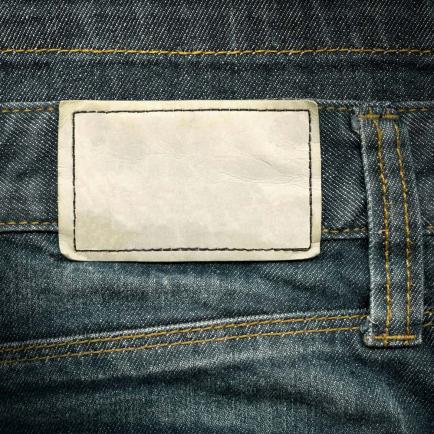
Quite often parents observe each other's children and make judgment statements. "What a good baby you have," is pronounced if he is even-tempered, sleeps through the night at 3 months and rarely cries. If a toddler is not demanding, we jealously express, "You are so lucky to have such a sweet child." A young child who hides behind her mother's skirt is called "shy." We hang labels on our children such as "good" "wild" "easy" or "hard" like they were articles of clothing.
"Good" vs. "Bad"?
Why do we use labels in front of our children? Labels stick. I knew a young child who, after misbehaving, often said, "I'm a bad boy." The child who sits quietly and doesn't create a disturbance is said to be "such a good boy." Doesn't that create the impression that the "bad boy" is the one who is highly energetic and gets into all sorts of mischief?
Maybe we should think twice before quickly identifying the calm, quiet baby as the "good" one when the crying, colicky baby isn't the opposite. Can a baby be "bad?" Of course not. Removing negative labeling is a good start in parenting. Here are additional ideas:
Celebrating differing child temperaments
The difference among babies, children and adults are their expressions of inborn tendencies as they react to their environment. We've all seen these variances play out in many situations.
Consider the Santa-at-the-mall scenario. Some kids can't wait to jump onto Santa's lap with a list full of wishes. Other children hang back, uncertain if they want to stand in line with such a noisy crowd and sit so closely to a strange-looking man, who is most certainly a stranger. They end up crying, and you end up thinking, "Why can't you be more outgoing?"
Consider celebrating, rather than bemoaning, the natural variances within children. What would the world be like if they were all the same? What if they all sat quietly; unquestioning and unchallenging? We would have no innovators, leaders, creators and athletes. I wonder what Bill Cosby, Emily Dickenson or Robin Williams were like as children? Did their parents foster their special talents and dispositions?
I believe we all must see the potential in our children. We should not compare or wish they were like us, but look forward to what they can be. Celebrate and nurture what God-given attributes will help them achieve their unique destiny.
Changing negatives to positives
In our struggle with a "different" child, perhaps it is the parent who needs to adjust, not the child. If we change our negative labels of children to recognizing positive attributes that will serve them well in life, we can foster the temperament unique to each child. Here are some ideas to help change those labels:
"Loud" can be seen as an "enthusiastic" child.
"Stubborn" is a characteristic that helps someone be "willing to persist in the face of difficulties."
"Explosive" is a child who "expresses himself easily and clearly."
"Wild" is certainly an "energetic" child.
"Withdrawn" or "Shy" can be a positive trait of a "reflective observer."
"Moody" is a person who is "sensitive with a wide range of emotions."
Parents can teach themselves to rephrase labels when raising their child. Instead of telling another parent that their child "is just shy," have your child overhear you affirm, "She's a bit cautious in new situations."
Redirecting harmful behaviors
I am not advocating unconditional acceptance or indulging wrongful behavior. The "explosive" child (from the example above) can still be appreciated for her colorful personality, but a responsible parent will also curb behaviors that would damage her relations with others. A parent can continue being positive while saying to a child having a temper tantrum: "You may not scream at me or throw toys. Please take time in your room to cool off so we can talk respectfully with each other."
Parents may override, or redirect some behaviors to change them from negative to positive. In doing so, we help a child train herself to express her inborn tendencies in a socially acceptable and safe way. For example, with a highly explorative toddler who loves to climb in high places and pull out electrical cords, tell him, "My, you are curious. Let's go see what you can explore more safely in the kitchen cabinet." Not only does this redirect the child, it redirects the parent's attitude about their child.
Essential also is separating the undesirable behavior from the desirable child. "I don't approve of your lying to me, but I still love you. You are a good child. Lying is not."
Seeing the world from the child's perspective
I raised a very fearful child. I enrolled her in swim lessons, and she would not put one toe in the water. All that money wasted. I could have longingly looked at the other happy children splashing in the water, not wasting their parents' money, and resented my child's tendencies. I could have forced her to be something she was not, or not ready to do. A better approach was to see the world from her point of view. "I know how scary it is for you to try going into this water. The pool looks very big. Let's take the time you need to feel comfortable. We can sit here and watch how the other children are doing it." We sat on the side for a lot of lessons, but I'm happy to report that her toe, followed by other body parts, eventually got wet.
Clothing labels are permanent tags with brand names that broadcast information. Labels on children also broadcast how we feel about them whether that is "good" or "bad." Let's remember to leave labels for clothing if we are about to use a harmful label on a child. Children should be tagged with love. These reminders will help us do so:

